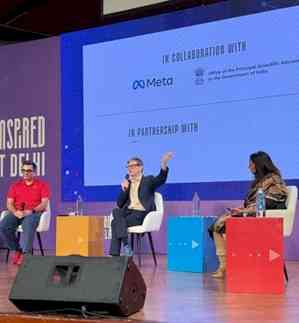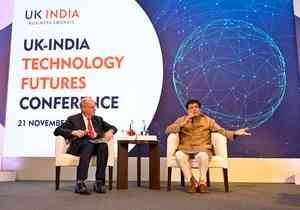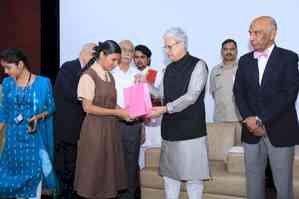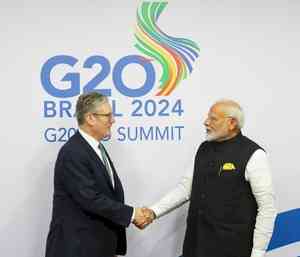India's diverse talent to use AI for societal growth: Meta’s chief AI scientist
India's diverse talent will help artificial intelligence (AI) become a powerful tool for societal growth, Meta's Chief AI Scientist, Dr Yann LeCun, has stressed.

New Delhi, Oct 26 (IANS) India's diverse talent will help artificial intelligence (AI) become a powerful tool for societal growth, Meta's Chief AI Scientist, Dr Yann LeCun, has stressed.
A pioneer in the field of AI, Dr LeCun said India has a key role to play in the AI era “because of the size of the population, its diversity of cultures and value systems”.
Speaking at a panel discussion at IIT Delhi, he envisioned smart glasses helping rural farmers interact with AI in their local dialects, with real-time subtitles.
The chief scientist also spoke about future models using Meta LLaMA 3, which could support India's official languages and translate non-written languages — all made possible through open-source technology.
“The future of AI depends on collaboration and innovation. With new architectures, open-source contributions, and India's diverse talent, AI can become a powerful tool for societal growth, empowering individuals and solving real-world challenges,” he told the gathering at the discussion presented by IIT Delhi in collaboration with Meta and the Principal Scientific Advisor to the government.
IIT Delhi Director Professor Rangan Banerjee spoke about the institute's initiatives in human-AI interface research and the Centre for Healthcare — a collaboration between AIIMS and IIT Delhi aimed at advancing healthcare through AI.
Challenging the current approaches to AI development, Dr. Yann urged for innovative architectures beyond large language models (LLMs). He argued that current AI paradigms are insufficient to achieve true human-like intelligence.
“We are not going to reach that stage by using the current paradigm and just making it bigger. We need essentially new architectures like objective-driven architecture,” he noted.
Addressing concerns about AI safety, he dismissed fears of intelligent systems dominating humans. “The future of AI is a future in which everyone will be walking around with an assistant digitally like smart glasses,” he said.
--IANS
na/


 IANS
IANS 














